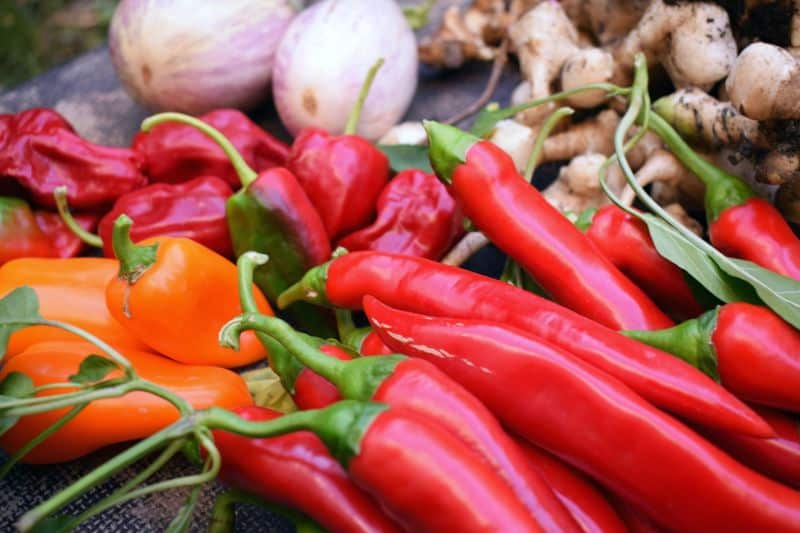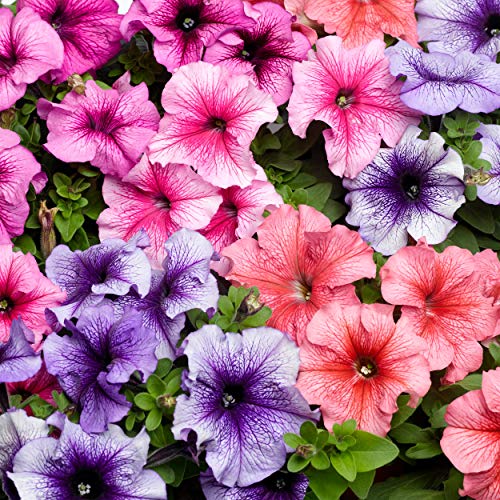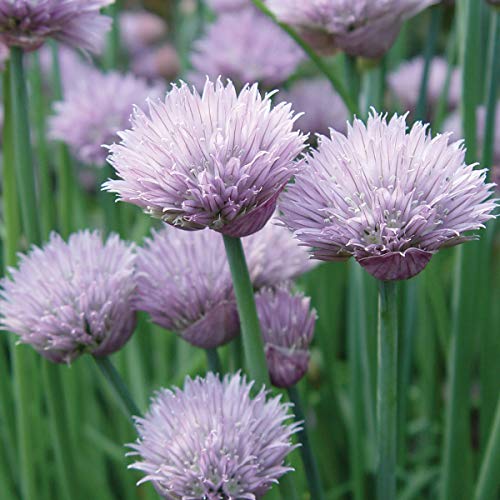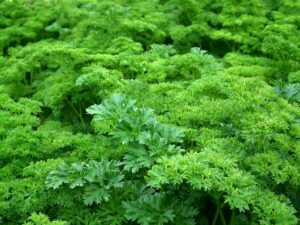Did you know that you can plant peppers with other fruits, flowers, herbs, and vegetables? Companion planting is a gardening technique that involves planting certain plants together in order to help them grow better. In this article, we will discuss the benefits of Companion Planting Peppers, and tell you which plants you should and should not plant alongside peppers. Read on to learn more!
Best Companion Plants for Peppers
Companion Planting Peppers and Strawberries
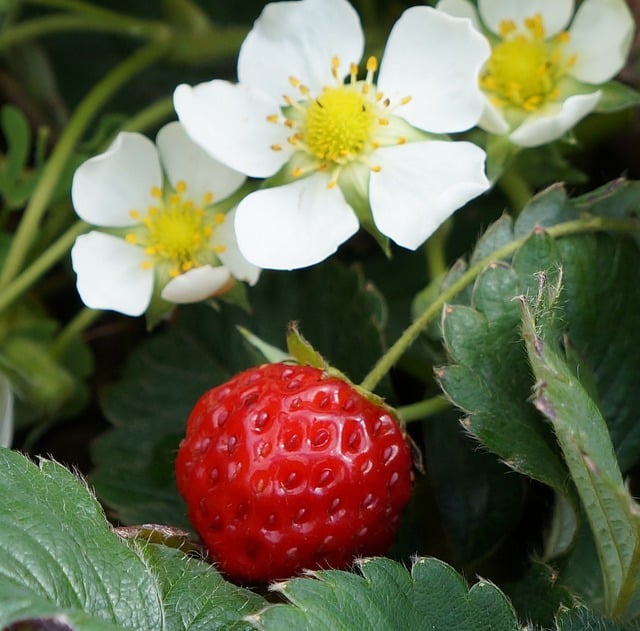
Companion planting peppers and strawberries can be a great way to attract pollinators and get more from less space. These low-growing plants can pull double duty as a living mulch and they will also provide you with a tasty mid-season treat. In addition, they’ll add color and dimension to a raised bed or border planting. Both plants are also relatively low-maintenance, so they make a good pairing for gardeners who want to maximize their garden’s yield with minimal effort.
Companion Planting Peppers and Zucchini
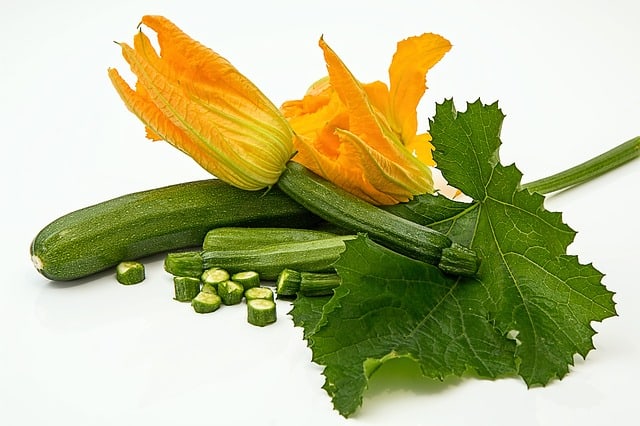
Zucchini are quick-growing plants that can provide shading for your peppers and help retain moisture in the soil. Be sure to plant the zucchini far enough away from the peppers so they can sprawl out and provide coverage. You’ll need to keep an eye on the zucchini and prune them back if they start to overshadow the peppers too much. But overall, this is a great way to create a more hospitable environment for your pepper plants.
Companion Planting Peppers and Beans
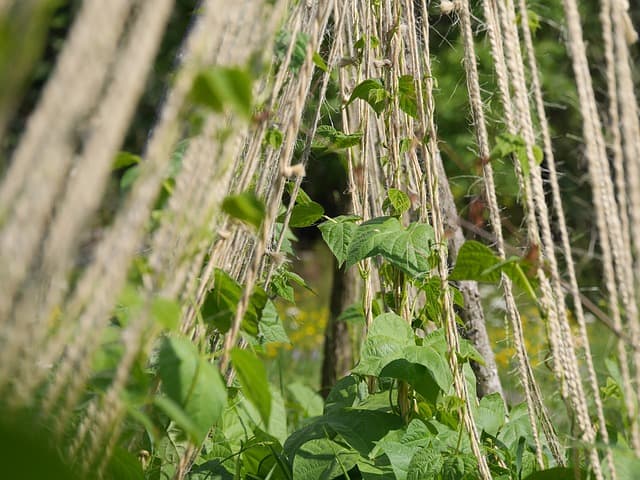
Companion planting peppers and beans is a great way to take advantage of these versatile nitrogen-fixing plants. Beans extract nitrogen from the air and transfer it into the soil, where it is used by other plants. This helps to fertilize the soil naturally and reduces the need for artificial fertilizers.
Additionally, companion planting with bush beans can shade the ground and keep the roots of other plants cool in the summer months. This helps to prevent them from wilting or becoming overheated. Lastly, pollinators like bees, wasps, and butterflies will also visit the bean vines when they are in full bloom.
Companion Planting Peppers and Lettuce
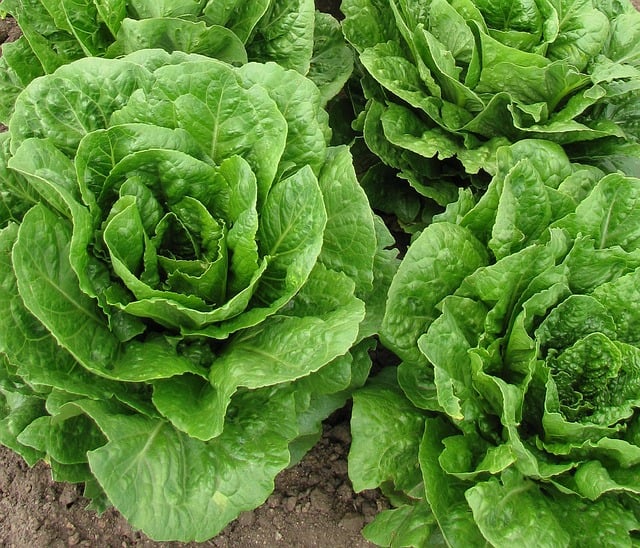
Peppers and lettuce are great companions to plant together. Lettuce can be planted around the perimeter of the garden, while peppers can be planted in the center. By doing this, you will make great use of space and be able to harvest an early spring lettuce crop. Lettuces are also a great mulch for pepper plants, which will help retain moisture and keep the ground cooler. So, not only will you have a beautiful and productive garden, but one that is low maintenance as well!
Companion Planting Peppers and Cucumbers
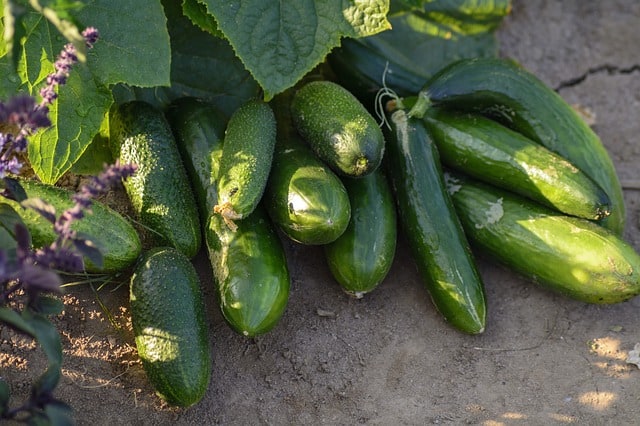
Cucumbers are a good companion for peppers because they act as a living mulch, keeping the ground cool and moist. They also attract pollinators and cucumbers can also repel some insects that can damage pepper plants.
Companion Planting Peppers and Garlic
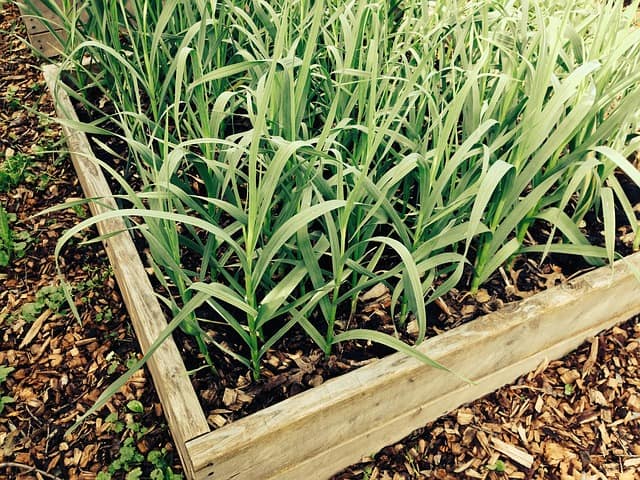
There are many benefits to companion planting peppers and garlic. Garlic repels deer and insects such as aphids and hornworms, making it a great way to protect your pepper plants. Plus, not only will it keep pests away from your plants, but it will also add a delicious flavor to your food.
Companion Planting Beets and Peppers
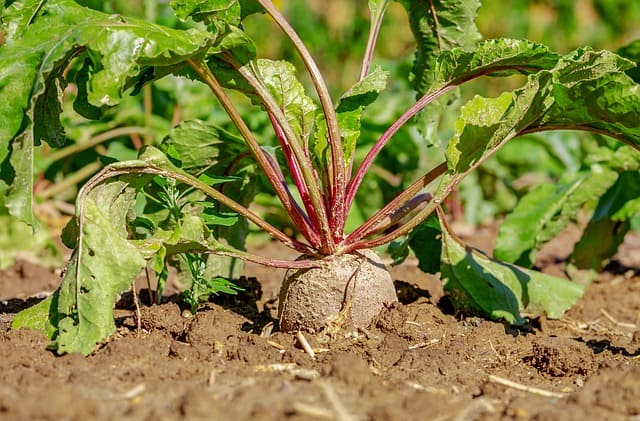
Companion planting beets and peppers is a great way to make use of an unused growing area in your garden. Beets are low-growing plants that can reach up to two feet tall. Peppers, on the other hand, are taller plants that can reach up to six feet tall. So, by planting these two crops together you can make use of the space in your garden more efficiently.
Companion Planting Peppers and Onions
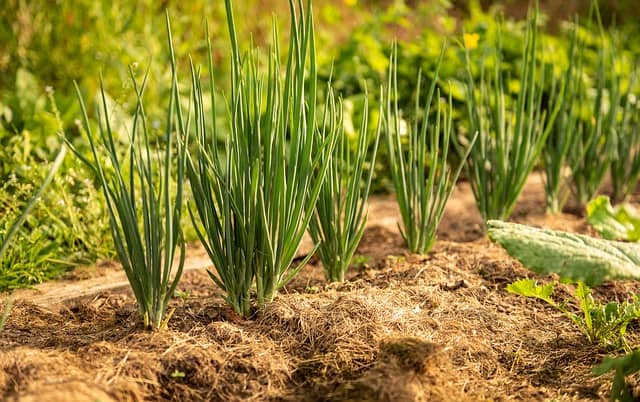
There are many benefits to planting peppers and onions together. One benefit is that onions can help repel insect and animal pests. Another benefit of companion planting peppers and onions is that they can be used in a number of recipes together.
Radishes and Peppers Companion Planting
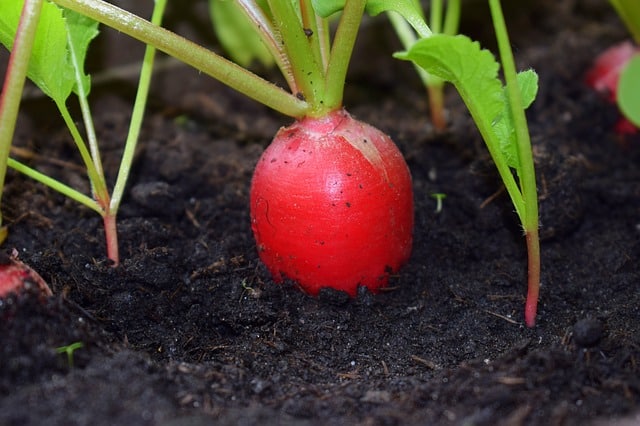
Radishes are a great companion for peppers because they are ready to harvest in about 30 days, and they grow low to the ground so they don’t take up much space. Additionally, their deep purple and red colors make them a beautiful addition to any garden, and they’re efficient growers too – so you get a lot of produce from a small amount of space.
Companion Planting Squash and Peppers
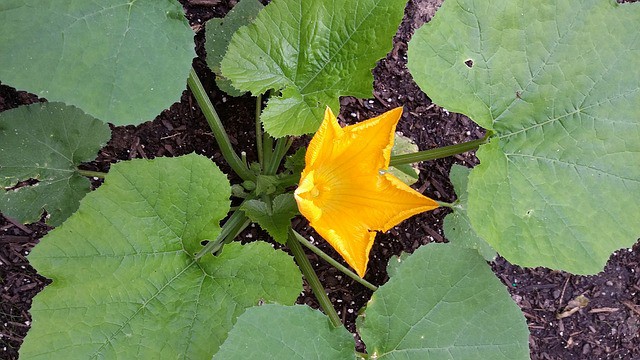
There are many benefits to companion planting squash and peppers. Squash acts as a living mulch, which can help to suppress weeds and conserve moisture in the soil. Additionally, squash attracts pollinators like bees, which are essential for ensuring a successful pepper crop. Peppers, in turn, can provide some pest control for squash plants by deterring certain insects.
Companion Planting Peppers and Okra
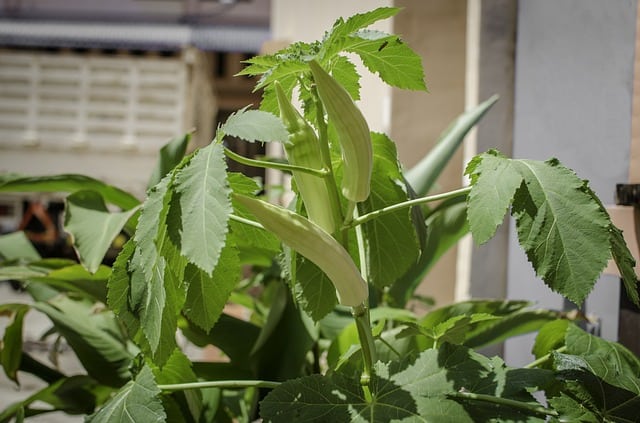
Companion Planting Peppers and okra is a great idea for southern gardeners since both of these plants love the heat. Peppers are especially well-suited to hot climates and can even be grown in desert regions. Okra, on the other hand, is a tropical plant that thrives in warm weather. Together, these two plants make a great team that can produce an abundance of tasty fruits and vegetables.
Companion Planting Peppers and Corn
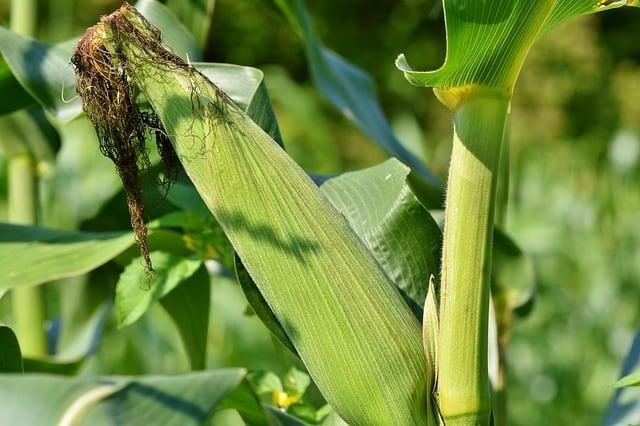
There are many benefits to companion planting peppers and corn. One benefit is that the corn can provide shade for the peppers, which can protect them from the hot summer sun. The corn can also act as a windbreak, which can help to keep the peppers from being blown over by strong winds. Additionally, the corn can provide support for the peppers as they grow.
Companion Planting Peppers and Chard
There are many benefits to Companion Planting Peppers and chard. One of the biggest benefits is that it is a great use of space. Chard is a low-growing plant, so it won’t take up much room in your garden. Plus, it will shade the ground and help retain soil moisture, which is important for peppers to reach their full potential.
Companion Planting Peppers and Spinach
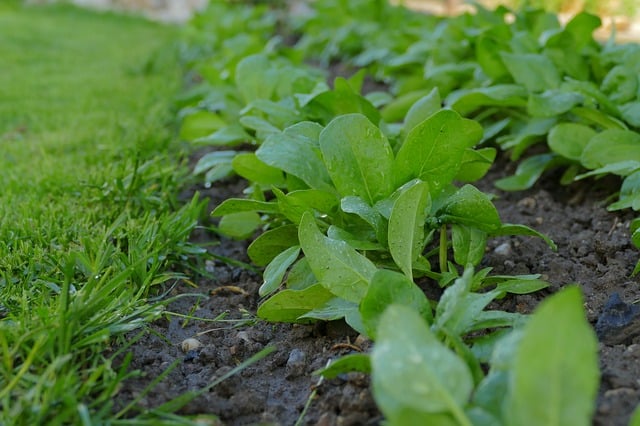
If you’re looking to make good use of space in your garden, peppers and spinach make a great companion planting combination. Spinach is a low-growing plant, so it won’t crowd out your peppers, and its leaves can act as a living mulch to help trap moisture in the soil. Plus, this pairing provides a tasty way to enjoy the fruits (and veggies) of your labor!
Companion Planting Peppers and Carrots
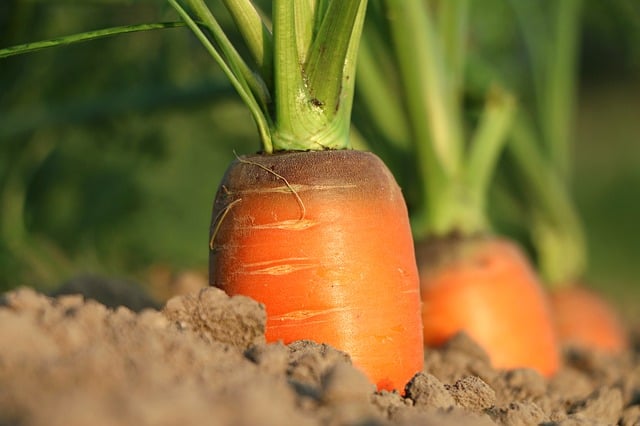
Companion Planting Peppers and carrots is a great way to save space in the garden. Carrots are a low-growing plant, and peppers are tall upright plants. This means that they can be grown close together without interfering with each other. Plus, another benefit of companion planting peppers and carrots is that the carrots will also act as a living mulch.
Companion Planting Peppers and Asparagus
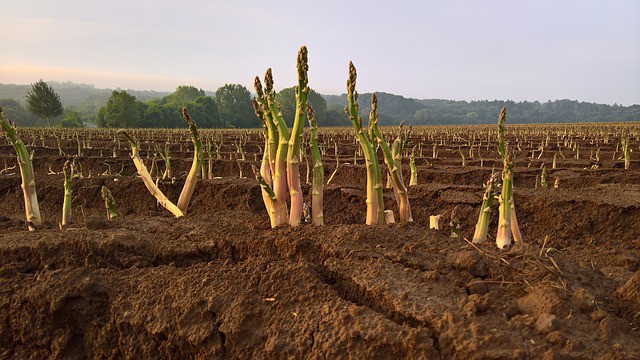
Companion Planting Peppers and asparagus can be a great way to make use of an asparagus bed over the summer months. Peppers love warm weather, and asparagus is usually cut back in the late spring. By planting pepper in an asparagus bed you can help extend the growing season and help keep weeds from taking over your asparagus bed.
Companion Planting Peppers and Tomatoes
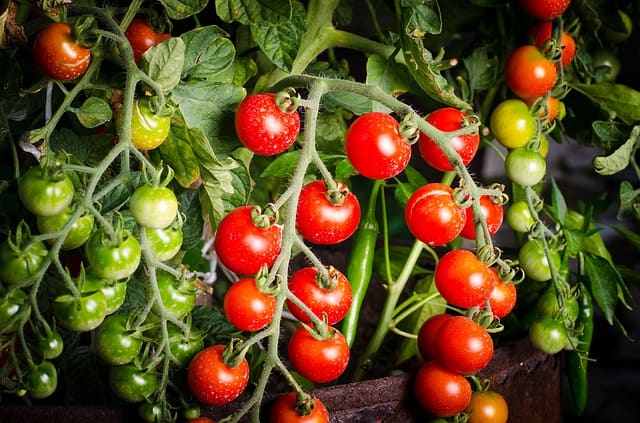
Tomatoes and peppers are both in the nightshade family, so they have similar needs in terms of soil, moisture, and light. However, they do share the same diseases and pests so if you want to keep your pepper plants healthy you should rotate them with non-nightshade plants. This way, you’ll avoid pests and diseases that might build up in the soil over time. Try growing some other types of veggies to keep things interesting – lettuce, chard, or even carrots would all make great choices!
Companion Planting Peppers and Eggplant
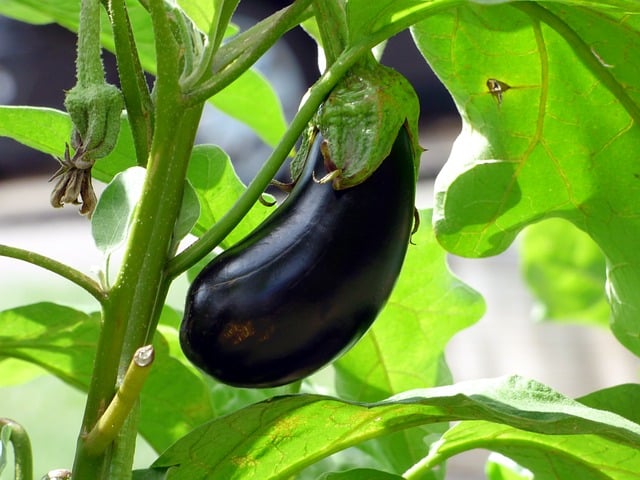
Peppers and eggplant are two vegetables that have similar requirements in terms of planting and care. They both need to be rotated every year to prevent pests and disease build-up, and they both love warm weather. When Companion Planting Peppers and eggplant, make sure to plant them in full sun and give them plenty of space to grow. If you’re short on space, you can plant them in containers placed on a sunny deck or patio.
Flowers That Make Good Companion Plants for Peppers
Marigold
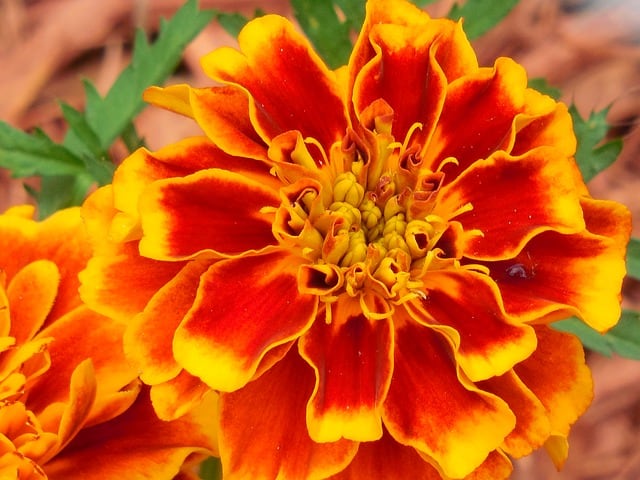
Marigolds have a number of benefits when planted near peppers. For one, they can help deter pests like nematodes and root-eating insects. They also release a compound called pyrethrum that repels many kinds of harmful pests, making them ideal companion plants for peppers.
Sweet Alyssum
One good companion plant for peppers is sweet alyssum. Alyssum grows quickly and attracts beneficial insects like hoverflies, who feed on aphids and other pests that can harm pepper plants. Additionally, the small flowers of alyssum add color to the garden and make a pretty addition to bouquets.
Geraniums
Peppers and geraniums are both heat-loving plants, so they make a great combo in the garden. They also have similar soil requirements, so they’re easy to grow together.
Geraniums will also add a splash of color to the garden and help keep pests away from peppers. Their aromatic leaves can also help deter aphids, whiteflies, and other insects that might damage pepper plants. Plus, geraniums attract pollinators like bees and wasps, which can help increase yields.
Petunias
Petunias are a great companion plant for peppers. They help to attract pollinators, and they also act as a deterrent to some pests.
Petunias release a substance that confuses and repels the insects that eat peppers. So planting petunias near your pepper plants will help to keep them safe from pests!
Nasturtium
Nasturtiums are a great companion plant for peppers. Their flowers and leaves are edible, and they add a peppery flavor to salads and other dishes. They will also serve as a trap crop that attracts aphids away from pepper plants, and they also provide some nutrients to the soil that help to keep the peppers healthy.
Companion Planting Peppers and Herbs
When planting a pepper garden, there are some herbs you can grow with your peppers that will help them thrive. Some of these herbs act as culinary companion plants, while others repel pests or improve the health of your pepper plants. By adding a few herbal companions to your pepper garden, you can make sure your peppers are happy and healthy!
Herbs That Make Good Companion Plants for Peppers
Chives
Chives make a great companion plant for peppers. They help to repel certain pests and they will also improve the flavor of pepper-based recipes. Chives can be planted directly next to the pepper plants or in a nearby pot. If you are looking for an herb that will do well in both hot and cold weather, chives are a good choice.
Cilantro
Cilantro is a great companion plant for peppers because it helps to repel harmful pests.
Cilantro releases a volatile oil into the air that confuses and deters pests like aphids, whiteflies, and spider mites.
It also makes an effective companion plant for tomatoes, eggplant, and peppers since it helps to repel tomato hornworms.
Cilantro also attracts beneficial insects like predatory wasps and ladybugs, so it’s a good choice for any garden.
Oregano
Oregano is a good companion plant for peppers because it helps to repel pests, including aphids, spider mites, and whiteflies.
Rosemary
Rosemary is a good companion plant for peppers. It has a strong flavor that can help to deter deer, and it also repels some common garden pests, like cabbage worms.
Rosemary is known to improve the flavor of just about any dish it’s added to – and this includes dishes made with peppers.
Thyme
Thyme is a great herb to grow alongside peppers because it can help to repel certain pests and will also add a delicious flavor to your dishes. Just make sure that you don’t plant too much thyme, as it can quickly take over a garden bed. Overall, though, thyme is an excellent herb to have in your pepper patch
Parsley
Parsley is a good companion plant for peppers since it is low growing and it also helps to repel insects. And parsley can be used as a garnish and it makes a great addition to a number of pepper-based dishes.
Lovage
Lovage is a great companion plant for peppers. It attracts predatory insects that prey on pests, making it a helpful ally in the garden.
Hyssop
Hyssop is definitely one of the best herbs to plant alongside peppers! Not only does it help to repel pests and garden insects, but it’s also very helpful in regulating moisture in the soil – which is key for pepper plants.
Bee-Balm
Bee-balm is a great companion plant for peppers. It attracts bees and other pollinators, which helps to pollinate the peppers. It also Repels bad bugs, including aphids, spider mites, and whiteflies.
Borage
Borage is an excellent companion plant for peppers. Not only does it attract bees and other pollinators, but it also has vibrant early blooming flowers that make it a beautiful addition to any garden.
Dill and Peppers Companion Planting Benefits
Dill is a great companion plant for peppers because it helps to repel aphids, a common pepper pest. Additionally, the strong smell of dill may help to mask the smell of peppers that could attract pests such as whiteflies.
Benefits of Companion Planting Basil and Peppers
Basil is a great companion plant for peppers. Not only does it look beautiful growing next to them, but it also helps in repelling pests and attracting pollinators. Basil also improves the flavor of pepper-based dishes, so it’s a great addition to any cook’s garden.
What Not To Plant Next To Peppers
Companion Planting Peppers and Potatoes
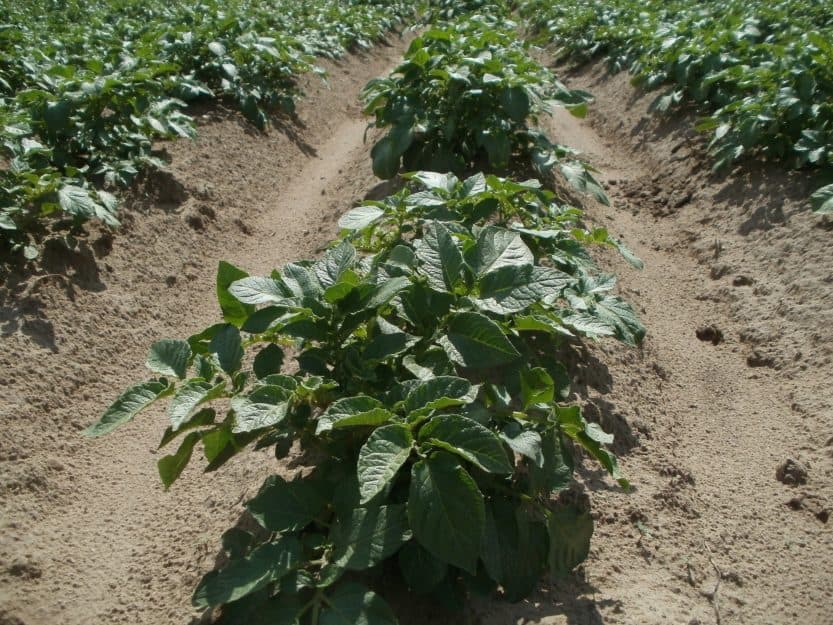
Potatoes should not be planted next to peppers because they can share the same diseases and pests. Potatoes are susceptible to early and late blight, while peppers are susceptible to aphids, whiteflies, and tomato hornworms. Additionally, potatoes and peppers grown in close proximity have been known to transfer harmful viruses between plants.
Fennel
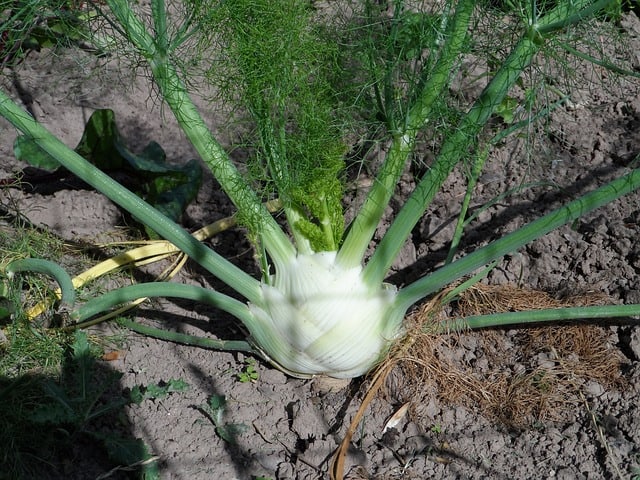
There are a few plants that you should avoid planting next to peppers, as they can have negative effects on their growth. One of these is fennel, which emits an allelopathic substance that can inhibit the growth of other plants around it. Additionally, mint and rue can also have a negative effect on pepper plants, so it’s best to keep them away from each other as well. Finally, avoid planting tomatoes next to peppers, as they share many of the same pests and diseases, which can easily spread between the two plants.
Apricot Trees
It’s always important to be mindful of what you plant next to your peppers. One thing you definitely don’t want to plant next to them is apricot trees. That’s because pepper plants are susceptible to a type of fungal disease called Verticillium wilt, which can be spread by peppers to apricot trees. So, if you’re growing peppers, it’s best to keep them away from any apricot trees.
Brassicas
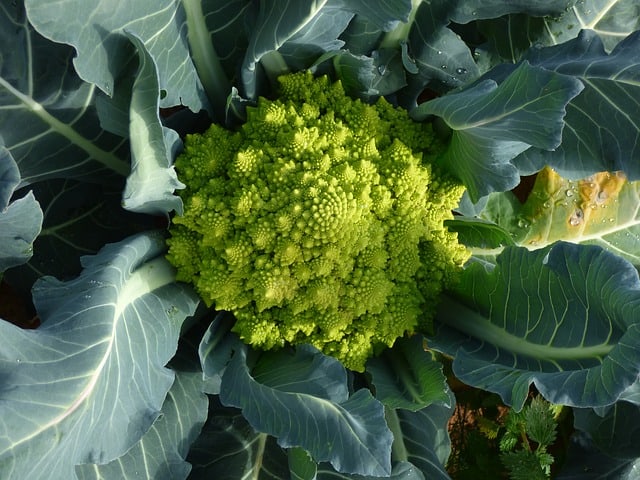
Brassicas, which include broccoli, cauliflower, and Brussels sprouts, have very different soil requirements than peppers. They prefer rich soil with a high pH, while peppers do best in fast-draining soil that has a low pH. This difference can lead to nutrient availability issues that can stunt the growth of both plants.
- Avoid Companion Planting Broccoli and Peppers
- Avoid Companion Planting Brussels Sprouts and Peppers
- Avoid Companion Planting Peppers and Cabbage
- Kale and Peppers Companion Planting is Not Advised


